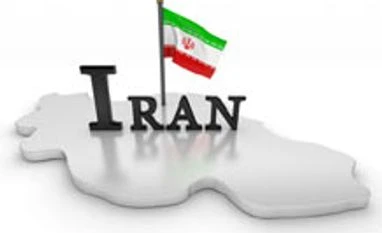Iran and world powers agreed on the framework of a potentially historic deal aimed at curbing Tehran's nuclear drive after marathon talks in Switzerland.
It marks a major breakthrough in a 12-year standoff between Iran and the West, which has long feared Tehran wants to build a nuclear bomb.
Iran has agreed to curtail its nuclear program in return for the lifting of punishing sanctions, EU foreign policy chief Federica Mogherini said after eight days of talks.
US Secretary of State John Kerry hailed a "big day" while Iranian President Hassan Rouhani said the drafting of a full agreement would begin immediately with the aim of completing it by the June 30 deadline.
Kerry tweeted that the global powers and Iran "now have parameters to resolve major issues on nuclear program. Back to work soon on a final deal".
Iranian media said the deal will include Iran slashing by two-thirds, to 6,000 from 19,000, the number of centrifuges, which can make fuel for nuclear power but also the core of a nuclear bomb.
Mogherini, in a joint press statement with Iranian Foreign Minister Mohammad Javad Zarif, also said that the design of a new reactor will be changed so that no weapons-grade plutonium can be produced.
The Fordo facility, built deep into a mountain, will remain open but will not be used for enrichment but for research and development.
In return, Mogherini said, nuclear-related US and EU sanctions will be lifted once the UN atomic watchdog has verified that Iran has implemented its promises.
The powers hope that the deal will make it virtually impossible for Iran to make nuclear weapons under the guise of its civilian programme and end a crisis raging for 12 years.
French Foreign Minister Laurent Fabius said, however, that there was still work to be done.
A successful implementation could put Iran and the US on the road to better relations after 35 years of animosity.
In addition, the powers and Iran hope it will finally silence all talk of military action by the United States and Israel against Iran.
With the world's fourth biggest oil and second biggest gas reserves, the energy industry is the cornerstone of Iran's economy, but it was hit hard by the American and European embargo imposed in 2012.
It marks a major breakthrough in a 12-year standoff between Iran and the West, which has long feared Tehran wants to build a nuclear bomb.
Iran has agreed to curtail its nuclear program in return for the lifting of punishing sanctions, EU foreign policy chief Federica Mogherini said after eight days of talks.
More From This Section
The main outlines agreed today now have to be finalised in a highly complex agreement by June 30.
US Secretary of State John Kerry hailed a "big day" while Iranian President Hassan Rouhani said the drafting of a full agreement would begin immediately with the aim of completing it by the June 30 deadline.
Kerry tweeted that the global powers and Iran "now have parameters to resolve major issues on nuclear program. Back to work soon on a final deal".
Iranian media said the deal will include Iran slashing by two-thirds, to 6,000 from 19,000, the number of centrifuges, which can make fuel for nuclear power but also the core of a nuclear bomb.
Mogherini, in a joint press statement with Iranian Foreign Minister Mohammad Javad Zarif, also said that the design of a new reactor will be changed so that no weapons-grade plutonium can be produced.
The Fordo facility, built deep into a mountain, will remain open but will not be used for enrichment but for research and development.
In return, Mogherini said, nuclear-related US and EU sanctions will be lifted once the UN atomic watchdog has verified that Iran has implemented its promises.
The powers hope that the deal will make it virtually impossible for Iran to make nuclear weapons under the guise of its civilian programme and end a crisis raging for 12 years.
French Foreign Minister Laurent Fabius said, however, that there was still work to be done.
A successful implementation could put Iran and the US on the road to better relations after 35 years of animosity.
In addition, the powers and Iran hope it will finally silence all talk of military action by the United States and Israel against Iran.
With the world's fourth biggest oil and second biggest gas reserves, the energy industry is the cornerstone of Iran's economy, but it was hit hard by the American and European embargo imposed in 2012.
)